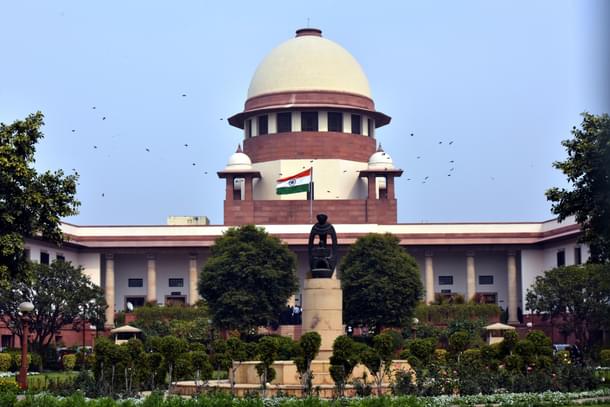Insta
PIL Filed In SC Seeking Gender And Religious-Neutral Uniform Grounds Of Maintenance, Alimony For All Citizens
Swarajya Staff
Oct 04, 2020, 01:54 PM | Updated 01:54 PM IST
Save & read from anywhere!
Bookmark stories for easy access on any device or the Swarajya app.


A public interest litigation (PIL) has been filed in the Supreme Court seeking "gender and religion-neutral" uniform grounds of maintenance and alimony for all citizens of the country, reports ANI.
Filed by advocate Ashwini Kumar Upadhyay, the petition contends that the Centre has totally failed to provide gender-neutral and religion-neutral uniform grounds of maintenance and alimony for all citizens despite the eloquent provisions in the Constitution.
The plea has sought directions to the Law Commission to examine domestic and international laws and prepare a report on "uniform grounds of maintenance and alimony" within three months.
It further also sought directions to the Centre to take appropriate steps to remove the prevailing anomalies in the grounds of maintenance and alimony and make them uniform for all citizens without discrimination on the basis of religion, race, cast, sex or place of birth.
The petition stated that even after 70 years of India becoming a socialist secular democratic republic, laws relating to maintenance and alimony are not only complex and cumbersome but also against the constitutional mandate of being equal, rational and just.
"Hindus, Buddhists, Sikhs, Jains are governed by the Hindu Marriage Act 1955 and the Hindu Adoption & Maintenance Act 1956. Muslims are dealt as per status of valid marriage & prenuptial agreement and governed under the Muslim Women Act 1986. Christians are governed under the Indian Divorce Act 1869 and Parsis under the Parsi Marriage & Divorce Act 1936, but none of these laws are gender neutral," it said, reports News18.
The plea has sought directions to declare that the discriminatory grounds of maintenance and alimony are violative of Articles 14, 15, 21 of the Constitution.
The PIL said that discriminatory maintenance and alimony reinforce patriarchal and stereotypical notions about women and thus any provision that perpetrates or reinforces discriminatory stereotypes against women is manifestly arbitrary





